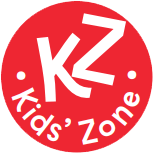ORACY
"Reading and writing float on a sea of talk." - One Education
"We promote excellence communication and language from the very start of the learning journey." - MV staff
"We value the importance of the children speaking in good, Standard English. This is an important life skill." - MV Governor
"I have to answer with a sentence, not just one or two words." - MV Pupil
"My teacher often corrects me if I say something in the wrong way. She says it helps me to learn." - MV Pupil
Being able to verbally communicate is something that we focus on as a school – it is the first thing we learn and if we get that right in the early years: reading and writing will naturally follow. Oracy is a key step in our writing process because we need to be able to verbalise sentences and ideas before we write them down in a clear and logical way. We provide as many opportunities as possible to promote speaking and listening throughout our curriculum from the very youngest children on their first day in the Nursery, to the very last day of Year 6. Dynamic use of questioning and different types of questions allow the children at Morley Victoria to further improve their speaking skills. Teachers plan many activities within the week which allow the children to express themselves verbally from circle time discussions, hot seating and role play to high quality debates about topical issues. We encourage all children to speak in Standard English and make every attempt to correct grammatical errors in speech as this in turn will have a knock on effect on the quality of writing in school.
We would always encourage our families to ensure that the children can discuss any of the exciting things that happen outside of school, during news time or when sharing achievements in assemblies.
Here are some things that you can do at home to help:
We often find that children can’t remember some of the details about where they have been, what exactly they have done (although they can often describe it well for us to guess) the names of locations, which airports they have travelled from, where they do sport lessons etc… If you could help them to know the facts, we would appreciate it.
The other thing that you could do that would really help with Oracy is to discuss books or texts that you have read together so that the children can give a comprehensive and coherent account of what they have read.
Try to encourage them to remember names of people, places and again, the finer details of what has happened – this can have such a positive effect on reading comprehension as well as spoken language.
Above all, please, just take time to talk. Ask the children the best thing that they have done at school that day. Ask them to describe a lesson that they enjoyed. Anything at all that gets them talking!






















